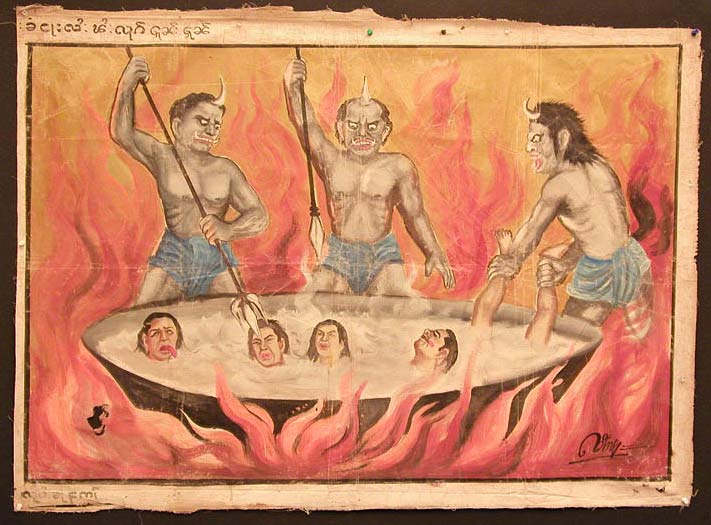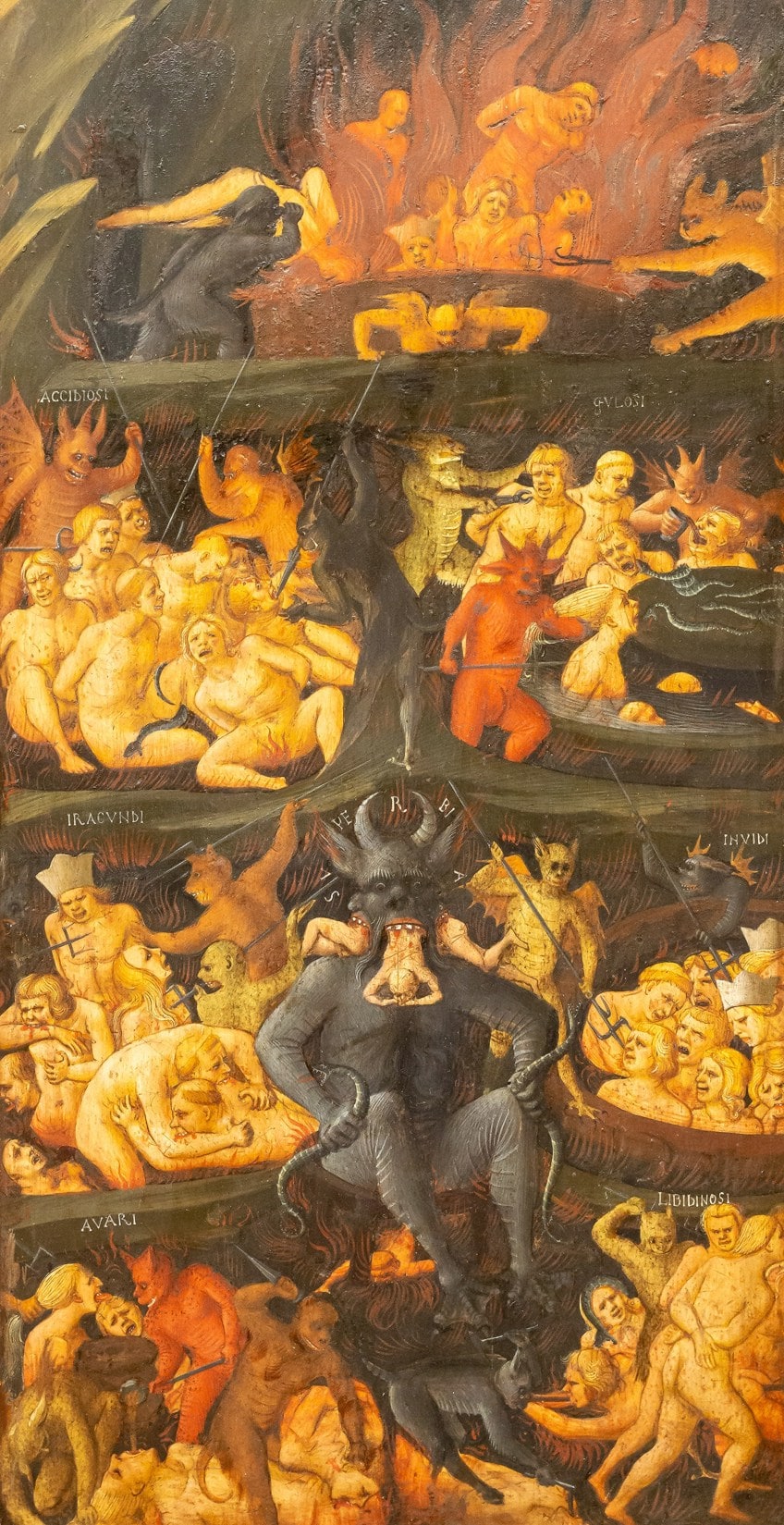There are suggestions in the Bible that few people make it
to heaven.
“Narrow is the path that leads to life, and few find it.”
Many read the book of Revelations to say that only 144,000
all told make it to heaven.
The visionaries of Fatima saw multitudes falling into hell.
This is troubling.
I wonder, however, if this is literal. It sounds to me like
the Buddha’s description of upaya in the Lotus Sutra: whatever is
necessary to lure the children out of the burning building. It is perhaps not
so much an accurate description of the population of Hell or the consequences
of sin, as a strategic or rhetorical device to illustrate the right path.
The point may more accurately be, we cannot get to heaven by
going along with the crowd; by doing what everyone else does.
This is necessarily true, because going along with the
crowd, or with others around us, or the social consensus, avoids making moral
decisions; so we cannot be earning merit even if the deed is objectively good.
It is the easy way, and, if by chance also the moral way, as Jesus says, “you
already have your reward.”
But the situation is worse than that. Any crowd or social environment
will tend toward the evil. As the Bible says, the Devil is the prince of this
world. Those guilty of sin will have a vested interest in promoting that sin, encouraging
others to that sin, avoiding personal responsibility for it. Those who go along
will go along, making the sin conventional. As happened in Sodom and Gomorrah; or
the world before the flood; or among the Canaanites or Carthaginians, who
practiced child sacrifice; or the extermination of Jews in Nazi Germany; or slavery
in so many countries; or abortion today. The worse the sin, the stronger the
social pressure to condone it. So as not to cause a fuss.
“The best lack all conviction, while the worst
Are full of passionate intensity.”
So going along with the crowd, a failure to take moral
responsibility, is doubly culpable. It is doing objective evil, and refusing to
take responsibility for it. Taken together, that looks like turning away from God himself, the sin
against the Holy Spirit.
But does this interpretation give us any greater hope? Surely,
by definition, if going along with the crowd leads to hell, most people must therefore
be destined for hell.
Not necessarily. It is actually possible that “the crowd” or
“the social consensus” is not the majority. It could be only the largest single
group, the one that speaks with one voice, even if most people approach issues
individually—since, after all, those who think for themselves do not operate as
a crowd.
It is the NPCs; joined in Hell, of course, by those who
think for themselves but have chosen evil.
What proportion is that of the general population? Your guess is probably as good as mine.
There are suggestions in the Bible that few people make it to heaven.
“Narrow is the path that leads to life, and few find it.”
Many read the book of Revelations to say that only 144,000 all told make it to heaven.
The visionaries of Fatima saw multitudes falling into hell.
This is troubling.
I wonder, however, if this is literal. It sounds to me like the Buddha’s description of upaya in the Lotus Sutra: whatever is necessary to lure the children out of the burning building. It is perhaps not so much an accurate description of the population of Hell or the consequences of sin, as a strategic or rhetorical device to illustrate the right path.
The point may more accurately be, we cannot get to heaven by going along with the crowd; by doing what everyone else does.
This is necessarily true, because going along with the crowd, or with others around us, or the social consensus, avoids making moral decisions; so we cannot be earning merit even if the deed is objectively good. It is the easy way, and, if by chance also the moral way, as Jesus says, “you already have your reward.”
But the situation is worse than that. Any crowd or social environment will tend toward the evil. As the Bible says, the Devil is the prince of this world. Those guilty of sin will have a vested interest in promoting that sin, encouraging others to that sin, avoiding personal responsibility for it. Those who go along will go along, making the sin conventional. As happened in Sodom and Gomorrah; or the world before the flood; or among the Canaanites or Carthaginians, who practiced child sacrifice; or the extermination of Jews in Nazi Germany; or slavery in so many countries; or abortion today. The worse the sin, the stronger the social pressure to condone it. So as not to cause a fuss.
Are full of passionate intensity.”
So going along with the crowd, a failure to take moral responsibility, is doubly culpable. It is doing objective evil, and refusing to take responsibility for it. Taken together, that looks like turning away from God himself, the sin against the Holy Spirit.
But does this interpretation give us any greater hope? Surely, by definition, if going along with the crowd leads to hell, most people must therefore be destined for hell.
Not necessarily. It is actually possible, if not probable, that “the crowd” or “the social consensus” is not the majority. It could be only the largest single group, the one that speaks with one voice, even if most people approach issues individually—since, after all, those who think for themselves do not operate as a crowd.
It is the NPCs; joined in Hell, of course, by those who think for themselves but have chosen evil.
What proportion is that of the general population? Your guess is probably as good as mine.



























